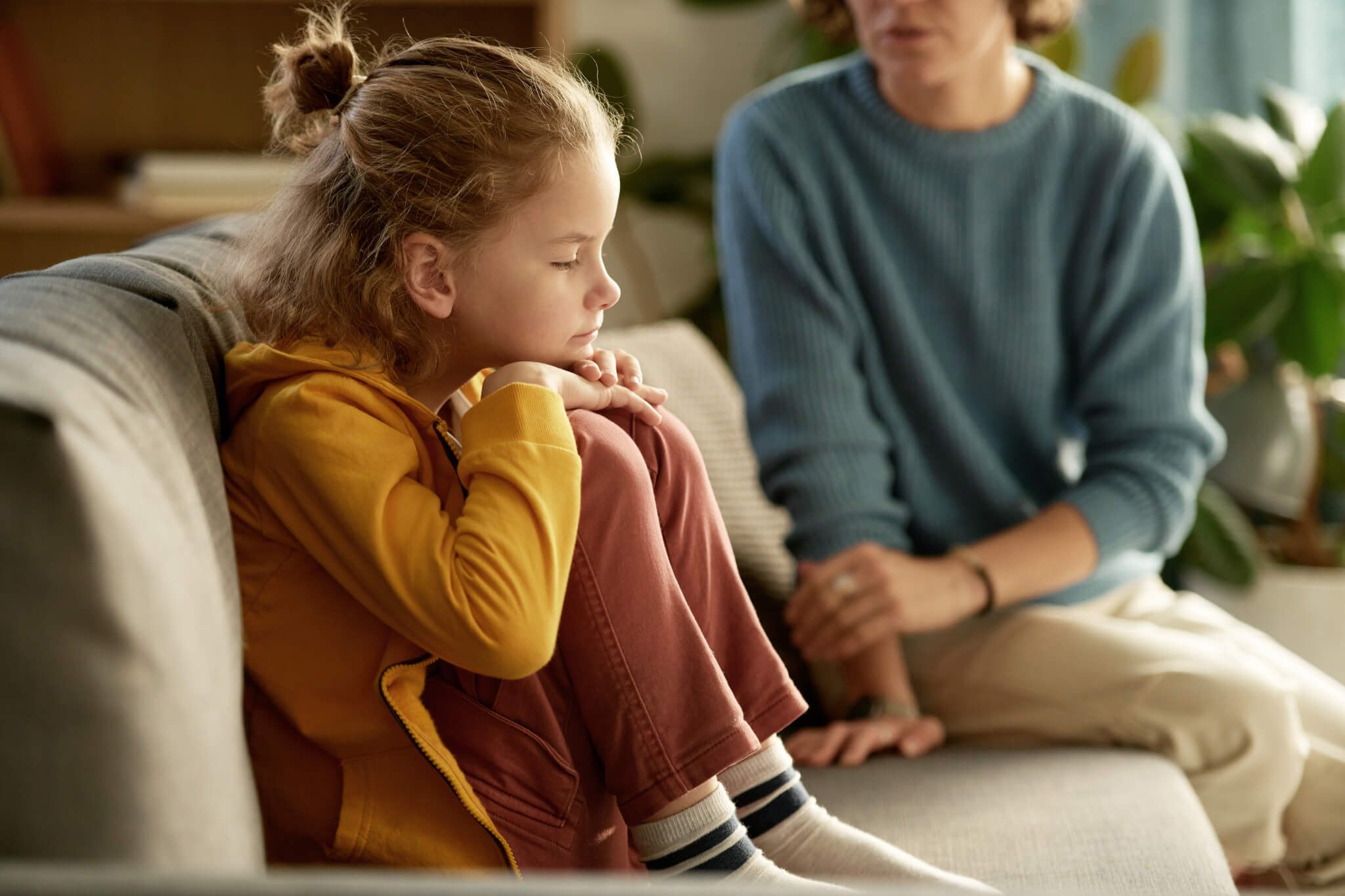DEVON, United Kingdom — A “sexpert” says parents should be talking to their kids about sex before they turn eight. Debbie Bere adds that moms and dads should always answer children honestly and continually engage in age-appropriate conversations with their kids about sex.
The 34-year-old notes that eight-year-olds often find everything “embarrassing” or “icky” – so moms and dads should start talking about bodies before this age. Bere suggests parents should never give genitals a nickname – since they usually don’t for other parts of the body.
For pre-teen children, she says parents should answer questions to better their understanding of sex. For example, if they ask “if sex hurts,” Debbie suggests that parents should tell them “it should never hurt but if it does to stop as consent is reversible.” Bere insists moms and dads should always answer kids honestly but use age-appropriate language.
“We should talk about sex from an early age. They have questions from birth,” the sexpert says in an online video.
“It needs to be before aged eight or nine as this when they get icky and embarrassed. If they are old enough to ask a question, they are old enough to hear the answer.”
Debbie adds everyone should be talking about LGBT relationships to help frame conversations about sex and consent.
“Talk about how love is love and relationships are beautiful,” Bere suggests.
With young children, Debbie says they should also learn to clean their genitals and explain their body parts.
“When explaining genitals, don’t give them a nickname. No ‘foo foo’ or ‘whistle.’ We don’t give other parts of the body a nickname. Giving them the real name empowers them.”

Debbie says parents shouldn’t just give “the talk” and nothing else. They need to have lots of conversations about sex over the years, developing into talks about consent, contraception, and STIs as children reach their teens.
“We need to talk about things in their language. It’s totally OK for an adult to feel uncomfortable with the conversation,” Bere continues. “Perhaps using a book to go through with you child can help in addition to the conversations.”
Debbie explains parents sometimes worry that after talking about sex and pleasure, their children will be “at it like rabbits.” However, the expert says it should actually have the opposite effect.
“They’ll make better decisions.”
Bere recommends parents should introduce sex in conversations before the age of eight or nine, with research by the Children’s Commissioner for England found 10 percent of nine-year-olds have already seen porn.
“Often they are searching for answers and find it accidentally. If they’ve been exposed, they need to make sure they see it for what it is – a performance,” Bere explains.
As a sex educator, Debbie is often asked “does sex hurt? Why do people like it? Would I die from sex? What are anal beads?” by children.
“If I’m asked what is 69 – I’ll have shown them a video of a man on top of a woman as part of the class and I’ll say 69 refers to another position. You don’t have to go into lots of detail. We often over explain because we feel uncomfortable. I always answer honestly.”
The 34-year-old says parents shouldn’t shame their children about sex or self-pleasure.
“Children touch themselves from a young age. We can understand it feels nice but ask them to do it in their room of somewhere private rather than the dinner table. Sex education is not just about a penis entering a vagina. It’s the expectation of relationships, how the body feels, body confidence and more.”
Bere is a mother of two boys, ages five and seven, and says they have an understanding of genitals so much so they were able to correct a teacher when they mislabelled the vulva as the vagina. She also receives condoms regularly as part of her job, which her boys know as “slimy, balloon that goes over the penis to stop sperm coming out.”
“Their first questions was ‘how do you have a wee with one?’” the mother notes.
Debbie says talking about these topics with our children can feel “uncomfortable,” but they should sit and think about why this is.
U.S. children receiving less sex education than 25 years ago
When it comes to learning about sex in school, health class can certainly be awkward for youngsters. Despite that, advocates for sexual education in schools say these lessons provide adolescents with critical information on topics like birth control and STDs.
According to researchers from Rutgers University, however, a significant portion of American children aren’t receiving enough sexual education. A 2021 report finds that only about half of all U.S. adolescents are getting enough sex education to satisfy minimum standards. Moreover, another sizable portion of children are receiving absolutely zero information on birth control and STD prevention.
South West News Service writer Emma Dunn contributed to this report.


Try starting at 3 years old. By then children should know how to keep their private parts clean and let their parents know if something does not feel right ‘down there’. Even Freud recognized that very young children engage in sexual stimulation: Named it ‘polymorphous perverse’ actions. Very young kids have no filters so that is the time to start teaching them, slowly of course. Now go tell your two year old not to keep taking their clothes off in public. Excellent time to strike up the band and start addressing these issue. European kids learn at a very young age and thus keep their virginity longer, have less STDs, and on almost all psychological tests, score higher than American kids.